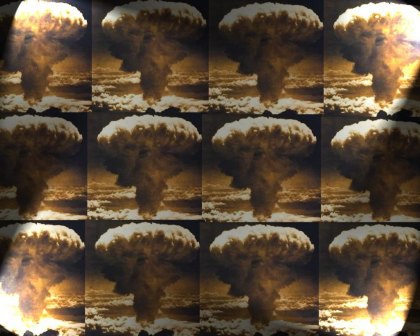Study questions bomb's long-term impact

While estimates differ, the detonation of atomic bombs over those two Japanese cities ended the lives of 100,000 to 200,000 people. Many more were injured.
“The dominant present-day image of the aftermath of the Hiroshima/Nagasaki bombings, in line with the general perception of radiation risk, is that it left the sites heavily contaminated, that the survivors suffered very serious health consequences, notably a very high rate of cancer and other debilitating diseases, and that offspring from these survivors had a highly increased rate of genetic defects,” wrote Bertrand R. Jordan, a molecular biologist at Aix-Marseille Université in France, in the journal, Genetics.
“In fact, the survivors have been the object of massive and careful long-term studies whose results to date do not support these conceptions and indicate, instead, measurable but limited detrimental health effects in survivors, and no detectable genetic effects in their offspring.”
In 1947, just two years after the bombing, researchers began to focus on the health of survivors. That work is still continuing, the research noted.
Jordan’s paper does not present new research, but summarizes ongoing work already underway:
The background: The Hiroshima bomb used enriched uranium. The Nagasaki bomb was based on plutonium. Both bombs caused extreme heat and a pressure blast, “accompanied by a strong burst of gamma radiation and a more limited burst of neutrons.” A firestorm erupted. “People were exposed to the combined heat and radiation blasts, with little shielding from the buildings.” Most who were within 1.5 kilometers (a little less than a mile) were killed. The number of “delayed deaths” is unknown, the study said, but probably in the neighborhood of 10,000 for each bomb site.
Studies begin: Shortly after the war, American and Japanese scientists began studying the impact of the bomb on survivors. They initiated a life-span study involving 120,000 individuals -- 100,000 exposed and 20,000 not in the cities at the time of the bombings. They also studied 77,000 children born between 1946 and 1984 to at least one survivor. “These have been followed now for over 60 years in most cases, and their general health, life expectancy, cancer incidence, and mortality ascertained,” Jordan wrote.
Cancer: In survivors heavily exposed to radiation, researchers found a sizable increase of neoplasms (an abnormal growth of tissue), “especially leukemia but also most solid cancers,” Jordan wrote. “It would be wrong, however, to assume that all survivors are hit by this disease, since even in this group the fraction affected is slightly above 20 percent, less than one-third of this being attributable to radiation exposure.”
The Children: Here, Jordan sets aside a group of children who were exposed to radiation in utero. Those children have suffered “growth deficiencies, intellectual impairment and neurological effects.” Children conceived and born to survivors in the years following the bomb are a different matter. These children show no detectable radiation-related pathology, Jordan wrote. Even if both parents were exposed, the incidence of malformations at birth does not increase. He adds one caveat: “Such studies may not reveal recessive mutations that would only become apparent in subsequent generations.”
Setting the record straight: Misperceptions can impact public debate, for example, on the use of nuclear power in energy generation.
Read the article in Genetics: The Hiroshima/Nagasaki Survivor Studies: Discrepancies Between Results and General Perception.
Related:
70 ago: Atom bomb dropped on Japan
Report: 1950s nuclear plans released
If you would like to comment, give us a shout, or like us on Facebook and tell us what you think.

